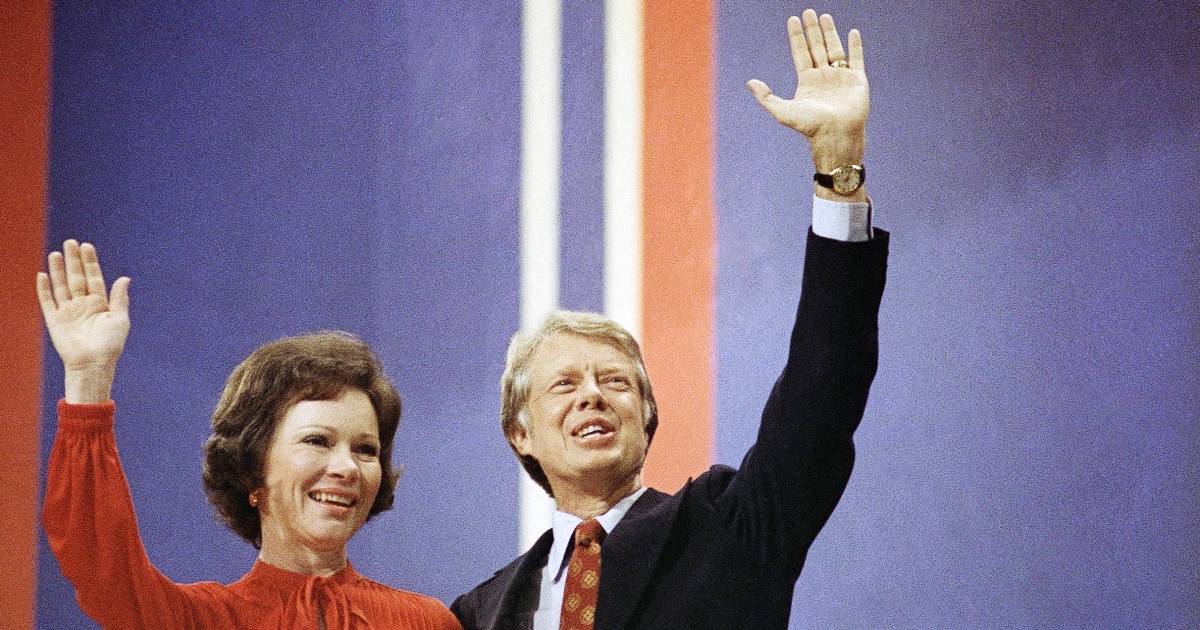During a period when LGBTQ individuals faced significant discrimination, former President Jimmy Carter distinguished himself with early support for gay rights, setting a precedent for future administrations. His actions, though seemingly modest by today’s standards, were notably progressive for the late 1970s.
At a time when same-sex intimacy was illegal in many states and political support for LGBTQ causes was rare, Carter, a Southern Democrat, stood out by championing pro-LGBTQ legislation and engaging with advocates. This was considered brave, as it would have been easier for him to avoid the issue altogether. Michael Bronski, a professor at Harvard University, emphasizes Carter's actions as the first federal response to LGBTQ issues at the White House.
During his 1976 presidential campaign, Carter openly endorsed the Equality Act, a measure aimed at amending the 1964 Civil Rights Act to ban discrimination based on sexual orientation. He publicly stated his commitment to signing such legislation, asserting that homosexuals should not be singled out for "special abuse or special harassment." This commitment was further solidified by his team’s reiteration of his stance on passing anti-discrimination laws and assuring that his policies would reflect this.
Carter’s stance was met with support from civil rights figures like Harvey Milk, who called Carter a leader who believed the government had no business interfering in personal matters. Later in 1977, a group of LGBTQ activists met with a presidential advisor at the White House, marking the first such meeting between gay rights leaders and the Executive Branch. This meeting, although not attended by Carter himself, was nonetheless considered a significant symbolic step forward.
However, this symbolic gesture also drew fire from anti-LGBTQ figures of the time, such as Anita Bryant, who denounced the meeting. James Kirchick, author of "Secret City: The Hidden History of Gay Washington," noted that this meeting occurred shortly after the U.S. Civil Service Commission lifted its ban on gay people in federal employment, highlighting the rapid shifts in policy and perceptions during that era.
Despite the progress, this meeting did not produce immediate tangible results. The meeting’s symbolic significance was paramount, signaling to the nation that LGBTQ individuals deserved recognition and equal rights.
In 1978, Carter further demonstrated his support by urging California voters to reject Proposition 6, which sought to ban gay and lesbian teachers from public schools. His direct opposition to the measure, which was ultimately defeated, underscored his commitment to LGBTQ rights. While Carter’s actions might seem limited compared to modern standards, they laid the groundwork for future leaders to build upon and created a national conversation.
The trajectory of LGBTQ rights shifted with Carter's 1980 defeat to Ronald Reagan, whose administration's response to the emerging AIDS crisis was heavily criticized. Bronski and historians argue that had Carter remained in office, the federal response to the AIDS crisis could have been significantly different and potentially saved many lives.
Years after leaving office, Carter continued to champion LGBTQ rights, notably advocating for same-sex marriage by citing that Jesus never condemned homosexuality. His lifelong support, while perhaps underappreciated in popular memory, leaves a crucial legacy of courage and early activism.







